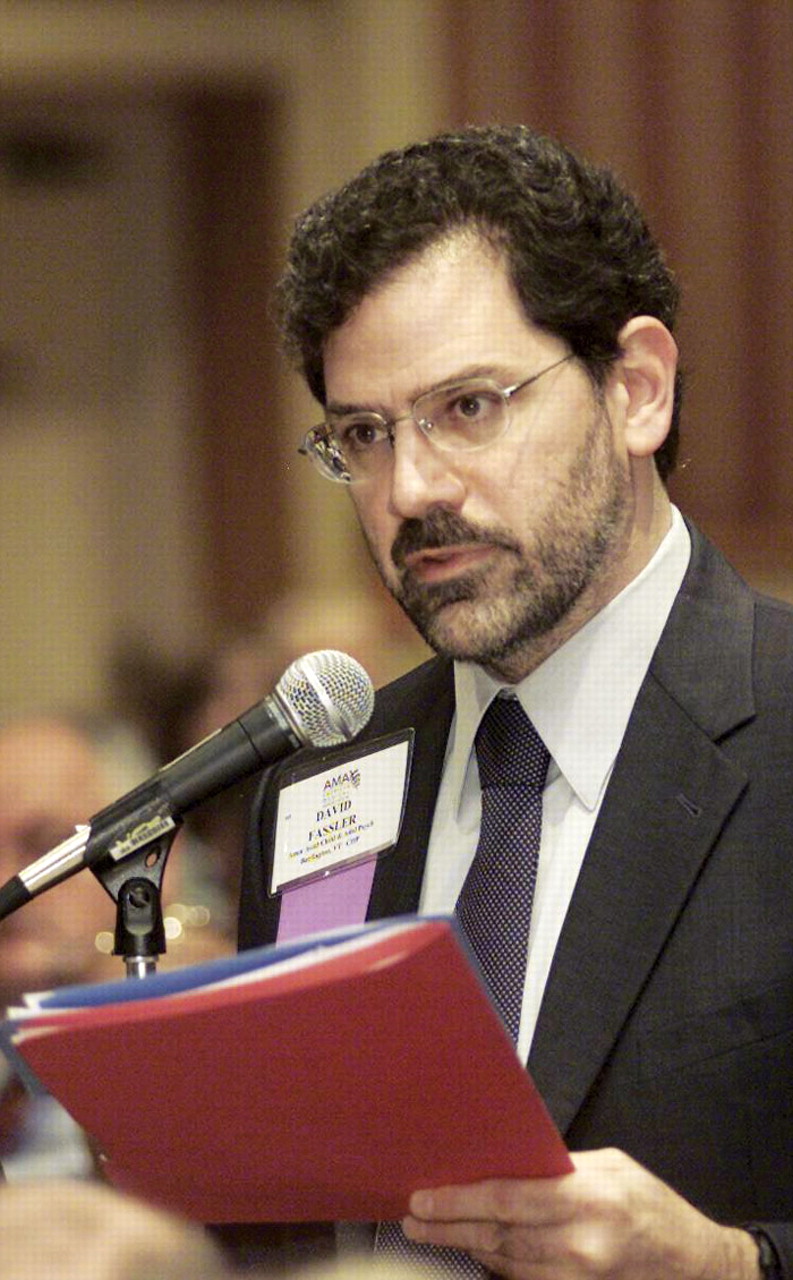Can physicians ethically participate in interrogation of prisoners and detainees—and if so, when and under what conditions?
Those are questions the AMA will answer in a report requested by the American Academy of Child and Adolescent Psychiatry (AACAP) and the American Academy of Pediatrics (AAP) at the interim meeting of the House of Delegates in Dallas in November.
In the wake of controversy over reports of participation by physicians—including psychiatrists—in the interrogation of detainees at Guantanamo Naval Base and in other parts of the world, the AMA's Council on Ethical Affairs will author a report to “delineate clearly for physicians the boundaries of ethical practice with respect to participation in the interrogation of prisoners and detainees.”
A resolution calling for the report was introduced by AACAP and AAP with support from APA's Section Council on Psychiatry. The resolution was widely supported by other physicians in the house and was adopted without debate.
“The members of the section council felt strongly that this was an important ethical issue for all physicians that demanded attention from the House of Delegates,” said John McIntyre, M.D., chair of the section council. “It is vital for physicians to have clear guidelines with respect to interrogation from the AMA, the nation's leading authority on the ethics of medical practice.”
The resolution calls for “input from all appropriate stakeholders” in the drafting of the report, and McIntyre said psychiatrists would be among them. During reference committee hearings on the resolution, Brig. Gen. David Young, M.D., a delegate from the U.S. Air Force, spoke in support of the resolution and offered the Air Force's help in drafting the report.
APA Trustee David Fassler, M.D., who introduced the resolution and is an AACAP representative to the AMA, noted in remarks during reference committee hearings that the APA Board of Trustees had approved a policy statement asserting that involvement in interrogations was incompatible with a psychiatrist's ethical obligations (Psychiatric News, November 4).“ Personally, I have serious concerns about the nature of physician participation described in many of the recent reports,” Fassler said.“ However, I recognize that there are a variety of perspectives on this issue, which is why I feel the AMA is the appropriate venue for a thoughtful, inclusive, and comprehensive analysis of this complex and controversial topic.”
APA Vice President Nada Stotland, M.D., told delegates at the meeting that the statement on the subject released earlier this year by the American Psychological Association—a statement granting wider latitude to the participation of psychologists in interrogation of detainees—garnered“ considerable negative media attention.”
“The all-important public trust in the medical profession depends on our acceptance of the precept of primum non nocere,” she said.
APA leaders had begun examining the issue of psychiatric participation in interrogation even before news of the Guantanamo interrogations became public; the process was accelerated last summer when the New England Journal of Medicine reported in its July 7 issue that a psychiatrist and a psychologist had each headed a Behavioral Science Consultation Team (BSCT, pronounced “biscuit”) to assist interrogators in questioning Guantanamo detainees (Psychiatric News, August 19).
In related news, an October 17 letter to Sen. John McCain (R-Ariz.) from APA expressed support for McCain's amendment to the Defense Department appropriations bill prohibiting cruel and degrading treatment of detainees.“ As a physician organization we are concerned that interrogations take into consideration the psychiatric health of prisoners and their physical well-being,” wrote APA President Steven Sharfstein, M.D. “It is particularly important that psychiatrists and other mental health professionals not be put in the position of taking action that compromises confidential patient information.”
In other actions relevant to psychiatry, the AMA house approved a resolution urging the federal government to eliminate the current exclusion of benzodiazepines and drugs for substance use disorders in formularies under the new Medicare Part D program. The resolution urged inclusion of benzodiazepines, methadone, buprenorphine, acamprosate, disulfiram, and naltrexone “for all clinically appropriate conditions.”
That resolution was approved with support from physicians in other specialties. “I take care of patients with terminal diseases who often require these medications,” said internist Melvyn Sterling, M.D., of Orange, Calif. “Methadone is ideal for neuropathic pain, and benzodiazepines are also often necessary for seizure disorders. There are many conditions other than psychiatric for which these medications are important.”
Finally, the house approved a resolution by AACAP, AAP, and the American Academy of Family Physicians urging AMA advocacy for the continuation of the Early and Periodic Screening, Diagnosis, and Treatment (EPSDT) program under Medicaid.
Carol Berkowitz, M.D., of AAP reminded delegates that the EPSDT program, enacted 40 years ago, was “the backbone of the Medicaid program” providing diagnosis and treatment for 26 million children.
“Now as EPSDT seems threatened by proposals in the House of Representatives, and the Medicaid Advisory Commission is seeking ways to reform Medicaid and cut costs, we feel the value and importance of EPSDT needs to be affirmed and supported,” she said.
Jeremy Veenstra-Vanderweele, M.D., the AACAP delegate to the AMA's Resident Physician Section and a resident member of the psychiatry section council, also spoke in support of the resolution.
“Neglecting preventive care as a way to save money is misguided,” he said. “I think there is a tendency in this country to neglect the most vulnerable populations when money is tight. But we need to take care of our children with medical and mental illnesses.”
The resolution on interrogations is posted online at<www.psych.org/downloads/AMAResolution1Nov05.pdf>.▪

